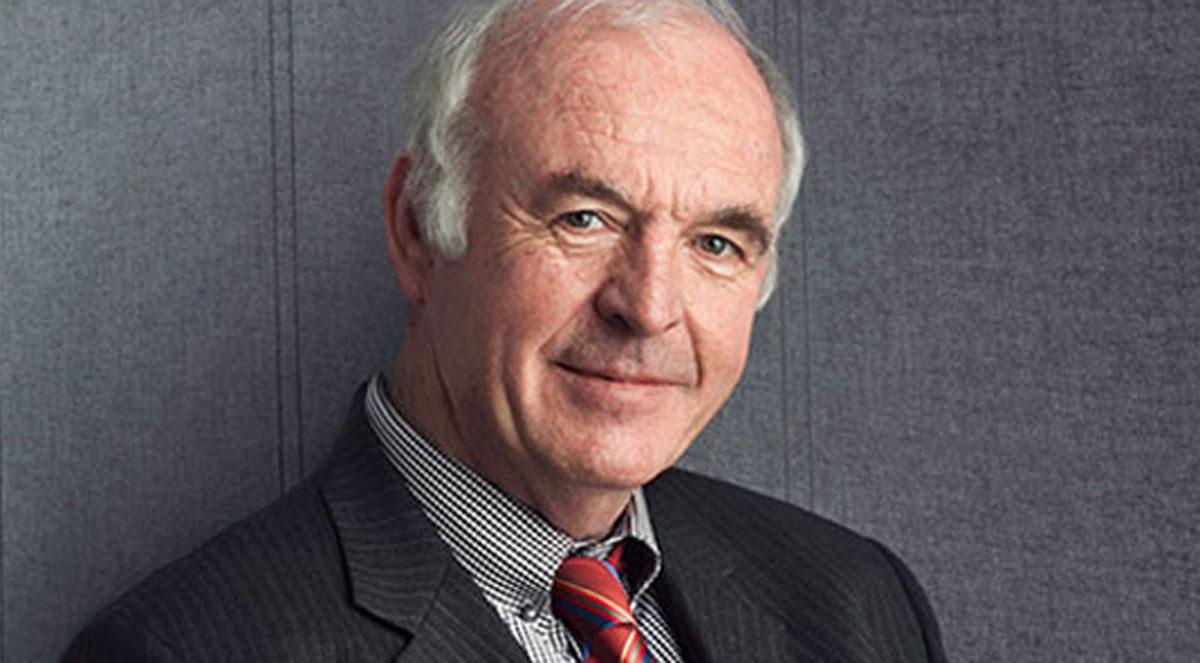click to dowload our latest edition
CLICK HERE TO SUBSCRIBE TO OUR NEWSLETTER


Published
3 years agoon
Internationally acclaimed futurist Clem Sunter says that when he wrote his latest book, Thinking the Future, he believed South Africa’s chance of overcoming its most negative scenario was 70/30. After July’s looting and violence, the odds slipped to 50/50.
Following the clean-up by the community and the spirit of renewal that went with it, these odds went back up to a more optimistic 70/30. But Sunter is clear that the odds of surviving anarchy and a failed state are still far too tenuous, and wouldn’t be tolerated in many countries, where the government would be voted out.
He told a SA Jewish Report webinar titled “South Africa – Thinking the Future” on 5 August that creating an inclusive “people’s economy” was even more important for South Africa than fighting COVID-19. In fact, he said, we should treat this challenge like we did the pandemic, using it as an inflection point to change direction from a “cautionary tale of increasing unrest, leading to total anarchy” to a future of growth and inclusion.
Sunter is famed for developing scenarios and weighing up what we can do to influence the possibilities – what he describes as “thinking like a fox”. He has written 20 books, and advised politicians and businesses across the spectrum, including doing scenario planning for South Africa’s mining colossus, Anglo American, where he headed up the gold and uranium division in the 1990s.
He’s clear about the immediate red flags for a “cautionary tale”. They include more incidents of looting and destruction; factional battles in the African National Congress (ANC); and “other parties” capturing the popular vote. Increasing anarchy also increases the odds of totalitarianism, endangering personal freedom.
“The ANC must forget about old-fashioned socialism – it’s done nothing for countries like Russia, Cuba, Venezuela, and North Korea,” he said. “We have to create an entrepreneurial economy.”
China, which is about to outstrip the United States (US) as the dominant global economy, has shifted towards entrepreneurialism while remaining politically autocratic. To a certain extent, we’re ahead of China, Sunter said, in that we already have a democracy. Now, we need to create a people’s economy.
In the changing world of work, small business is the job creator. As an example, the South African mining sector used to employ about 600 000 people, but this has been reduced to only about 200 000.
Turning this pattern around requires a “bottom-up” energy like the recent community initiatives following the looting. “We need entrepreneurial hubs. We need stock exchanges in each major city where people can float their businesses. We need crowdfunding initiatives, banks need to microlend, and big business should commit 20% of its supply chain to nurturing small business,” he said.
Like we did with COVID-19, we should set up an entrepreneurial council made up of experts in business creation – Sunter mentions Adrian Gore, even Elon Musk in this regard – which meets regularly, sets up measurable deliverables, and reports back to the public regularly.
Private property and tenure are crucial to the process of wealth creation. They must be protected and encouraged at all costs, he said.
“We cannot have an unemployment rate of 35%,” Sunter pointed out. Black economic empowerment, which “had its place in an economy dominated by white business”, improved the lives of only a small minority, and won’t resolve youth unemployment. It must change.
“Education is the number one determinant of a winning nation,” he said, referring to powerhouses like Singapore, where teachers are highly paid relative to other professionals. We must improve our education system and make full use of technological devices. “We need the technological equivalent of an iPhone in the hands of every kid in South Africa,” Sunter said. And we need to stem the skills exodus.
Asking who our heroes are, he said we need to shift our reverence to inventors and entrepreneurs like Siyabulela Xuza, who built a rocket and invented a cheaper form of jet fuel. “We should be worshipping these guys. The US wasn’t made great by politicians but by people like Ford, Disney, Gates, and Jobs.”
“Like Julius Malema, I’m an economic freedom fighter,” Sunter said. “I just believe in freeing up the economy, not closing it down. Wouldn’t it be great if we could change his views – he has access to a lot of support amongst the youth after all.”
Ultimately though, he doesn’t advocate coalitions with the Economic Freedom Fighters, but with a “better run ANC which is prepared to work with the private sector”.
“I hope Cyril [Ramaphosa] hears this message. So many talented people would love it to happen, and would give their time and effort to it. There are choices. If we roll up our sleeves and create a people’s economy, we could create a different future.”
